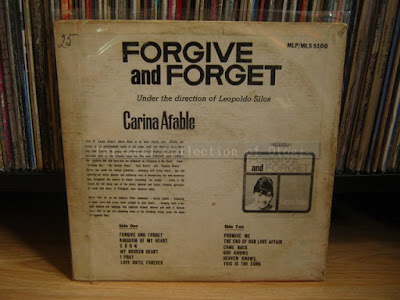Side A
Super Nova Scum
Multo Sa Paningin
Magulo Buhay ng Tao
Anak Ka Ng Ina Mo
Mukha Ng Pera
Takbo
Side B
Basura
Tao Po
Balbon
Poselana
Payo
Sinta
The Youth is a Filipino rock band. Their music is a mixture of punk and alternative rock, influenced heavily by Wuds, a pioneering Filipino punk band.
First, it was called “Boyish Day”; the band was formed in 1989 composed of Dodong Cruz (Bass/Backup vocals), Erap Carrasco (Drums), Pat Epino (lead guitars) and Zaldy Carrasco (Lead singer). They played music suitable during the time, New wave, alternative and punk music, which was common on the radio station XB102’s Capital Radio. The station saw the origins of what would be one of the most famous local acts of the early 90’s.
Due to musical differences, the group separated and formed another groups. Dodong and Pat formed EnVoice, while Erap and Zaldy, together with John Olidan, formed the Obscure Tone. Whenever there were concerts, Dodong, Erap and John always volunteer to be front act in concerts when nobody doesn't want to be first. The trio became popular, and they decided to form a new group called The Youth. Their first underground hit song was say “AMEN”. Dodong was thereafter named as Kristo. Another member joined The Youth in the person of Raul Velez. Prior to release of The Youth's first album, John Olidan migrated to Canada. He was replaced by Robert Javier. With their diverse influences, The Youth was able to produce their very own signature sound.
In 1990, Richard Tan of Backbeat Records took them under his wing. They were able to record and release a self-titled independent album. Like any other indie productions, the album had limited success. It is considered a collector's item today.
The band started performing in different underground gigs. They even penned themselves as “Da Wol” while signing up for the 1990 RJ Battle of the Bands, a contest strictly for amateur bands only. That meant the band having not recorded an album yet. Even with the indie album under their belt, they made it to the top and won the contest. Shortly after, however, Velez and Olidan left the band. The departure of two members was immediately replaced by a single Robert Javier, forming the classic thee-piece line-up of The Youth. As soon as he started jamming with the band, he injected his own off-beat humor into the band’s songs and performances. Due to frontman Cruz’s persistence, Club Dredd finally agreed to book the band in 1991. Considering their high-volume, high-energy and highly-impromptu performances, the band slowly established a cult following after several months of gigs. Soon, they became a headliner of the club. Their shows were sold-out, sometimes twice a week or more. Thanks to their combined punk, alternative rock, hard rock and satirical humor, audiences ate up their irreverent humor and distinct musicality. People returned again and again, each performance having surprises.
Going Major
1993 witnessed the band’s signing to a major label. A few months after Eraserheads were signed to Sony Music, The Youth was contracted by MCA Music. This started the so-called “alternative music boom”. In 1994, the band released their debut album, "Album na Walang Pamagat" (trans. Album Without a Title). It contained the carrier single "Multo sa Paningin (Multong Bakla)," which became an instant hit. Javier started writing songs. The Youth gained massive airplay on many different rock stations across the nation, and the album was certified Platinum.
In 1995, The Youth finished recording their follow-up album, "Tao Po." However, the album's release was delayed as the band performed concerts all over the country. In 1997, the much-awaited "Tao Po" was finally released. Though the album sales were similar to that of their debut album, the reviews were mixed, partly due to alternative rock's commercial decline. With lack of airplay and promotion, gigs slowly declined. The Youth gained a name for creating riotous concerts. One example was at the Araneta Coliseum where the band was unable to play a single song due to riots that broke out whenever they started playing. The riots eventually stopped.
Breakup/Post-The Youth/Reunion
Relationships between members were a stress especially for the two opposing songwriters whose influences caused the break-up of the band. Fans were in complete shock when frontman Dodong Cruz pursued a solo career and unexpectedly scored a deal with JML Records, marking the end of the band’s heyday. The two remaining members went ahead and formed Warehouse Club. Cruz's solo career was a moderate success as his debut album, Experimento hit gold status. As the label revamped into a newly formed Star Records, Cruz faded into obscurity for several years.
Then in November 1999, The Youth reformed and performed at Mayric’s. The gig was supposed to be a one-night reunion show only. However, the band’s magic was ever-present which inspired them to continue recording and get back into the mainstream.
Currently, The Youth is composed of Dodong Cruz as the band's vocalist and guitarist, Robert Javier on bass and vocals, and Erap Carrasco on drums. In 2004, the band released a song as part of the Jack Daniel's In Session: Manila compilation.
In 2012, The Youth finally came back in the OPM rock music scene with their much awaited 5th and reunion album Pirata.
Members:
Current members:
Dodong Cruz (vocals, guitarist)
Erap Carrasco (drums)
Robert Javier (bassist, vocals)
Former Members:
Pat Epino (lead guitarist)
John Olidan (bassist)
Raul Velez (guitarist)
-wiki

















